Many of us have grown up with amateur gardeners; over 75% of Americans garden each year in some way! However, as our parents get older, their gardens will require unique changes. For many of them, gardens hold a special place in their heart. Garden modification for seniors is a key step in preparing their home for a safe and rewarding hobby.
When modifying our loved one’s home for aging, it can be easy to ignore the outside of their home. Access to critical places like bathrooms and kitchens usually take priority, but let’s not forget the importance of an outdoors space.
Gardening activities for seniors have been shown to improve emotional, physical, and cognitive health. Whether our loved ones are facing dementia or are struggling to add movement to their day, gardening will support them in their aging journey.
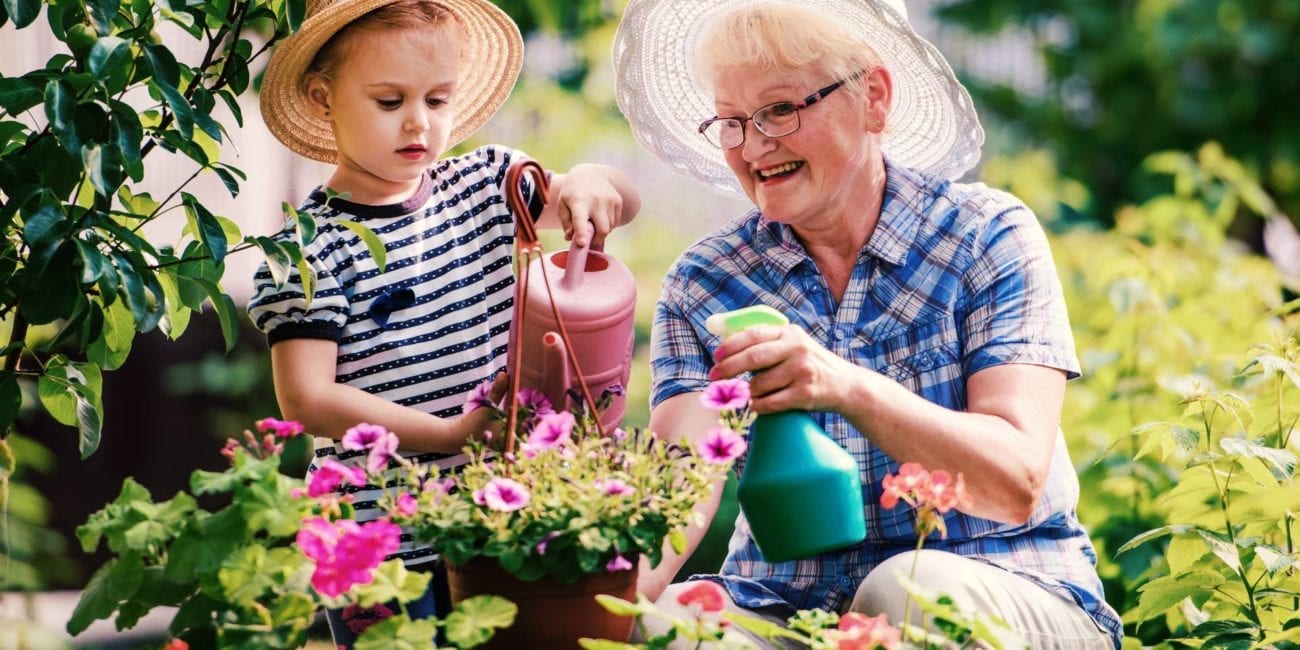
Therapeutic Gardens for Aging Adults
Many of us may see yard care and gardening as a chore, but for others it can be very therapeutic.
Gardening might be the perfect hobby to support our loved ones in their aging process. Doctors, psychologists, and aging experts agree that enjoyable hobbies that promote movement outside can offer physical, emotional, and cognitive benefits to a loved one, and gardening is often encouraged as one of these healthy hobbies. Let’s review the various benefits of gardens and some tips for garden modification for seniors
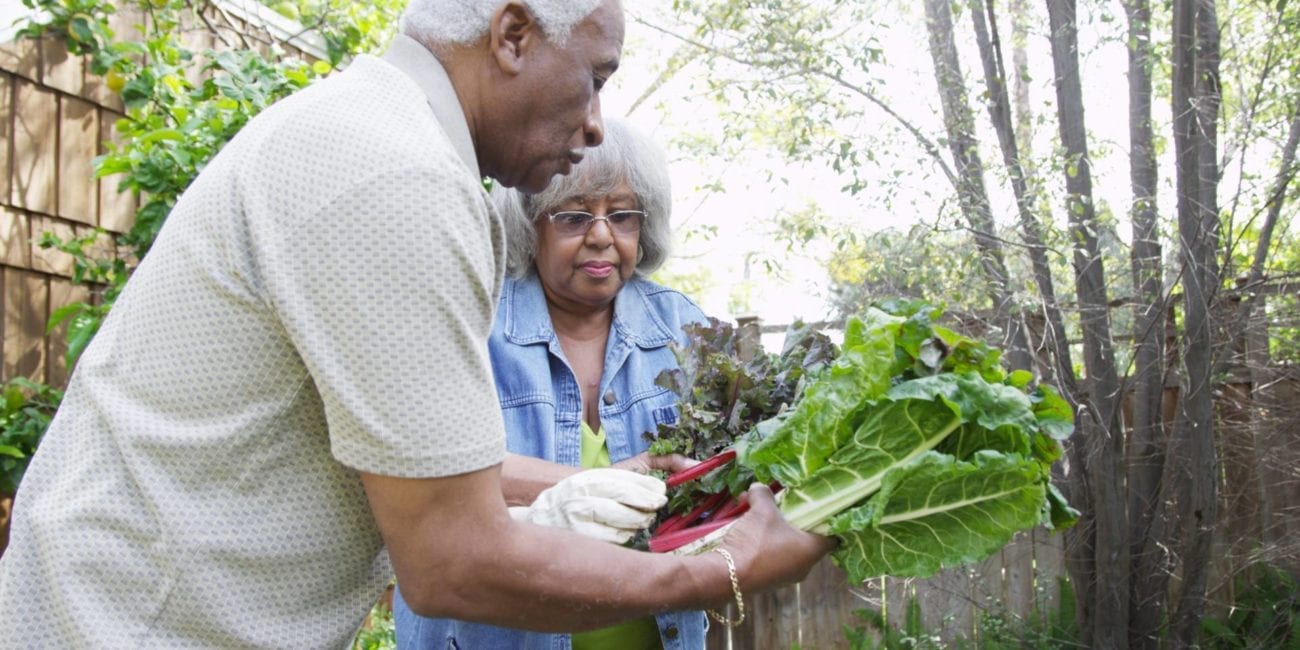
How Does Gardening Help with Dementia?
One benefit of making garden modifications for seniors is to allow continuing gardening for those suffering from dementia or Alzheimer’s disease. Gardening can significantly help our loved ones’ physical and cognitive health as it stimulates parts of the brain that do not get as much use when older folks stop going to work or challenging themselves physically.
If a loved one lives with a form of dementia, you may have noticed some of their senses dull. For example, familiar scents and or visuals may become less recognizable to them. However, gardening offers many smells, sounds, and visuals that can help “awaken” some of their senses. Like carefully working out a muscle, as one spends time in a garden, you can lightly challenge the senses.
Gardening activities for seniors will help improve balance and muscular strength. As one ages, balance and strength can become more difficult. Sadly, this is especially true of our aging parents with forms of dementia. Gardening can be a light, fun activity for your older adult while still carefully challenging their body.
Some families find a garden to be therapeutic for their elderly loved one with dementia because of the mood-elevating effects it can have. Being outside in the sun surrounded by plants will usually decrease overall agitation or stress. Many adults with dementia enjoy having their own plants to take care of, allowing them to be the caretaker of something.
From increased attention spans to decreased isolation, gardens can have dozens of benefits for your loved one with dementia. However, you know your parent and their condition best. Choose a gardening project that suits them and their individual needs. This could range from a full-yard garden to a small container garden on their patio.
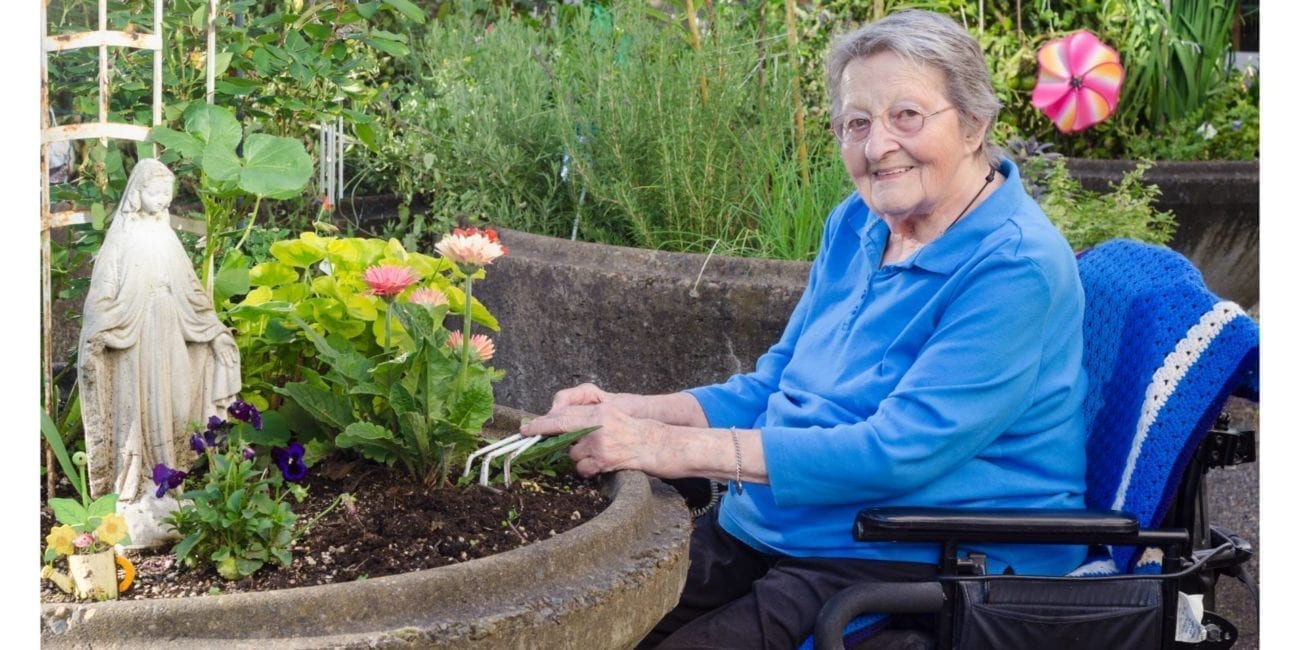
Social Gardening
Gardening doesn’t have to be a solo project. Above all, older adults benefit from social connections and support and gardening can be a creative way of getting them involved in their community and engaging with others!
Helping a loved one connect with a local community garden can provide new social opportunities for them while keeping them engaged in something they love. Check to see if there’s a garden club in your senior’s community and consider attending a few meetings with them to help them get connected with their neighbors.
As family caregivers, we can jump in for some quality time together outside with our parent; consider gardening together as a family or multi-generational activity.
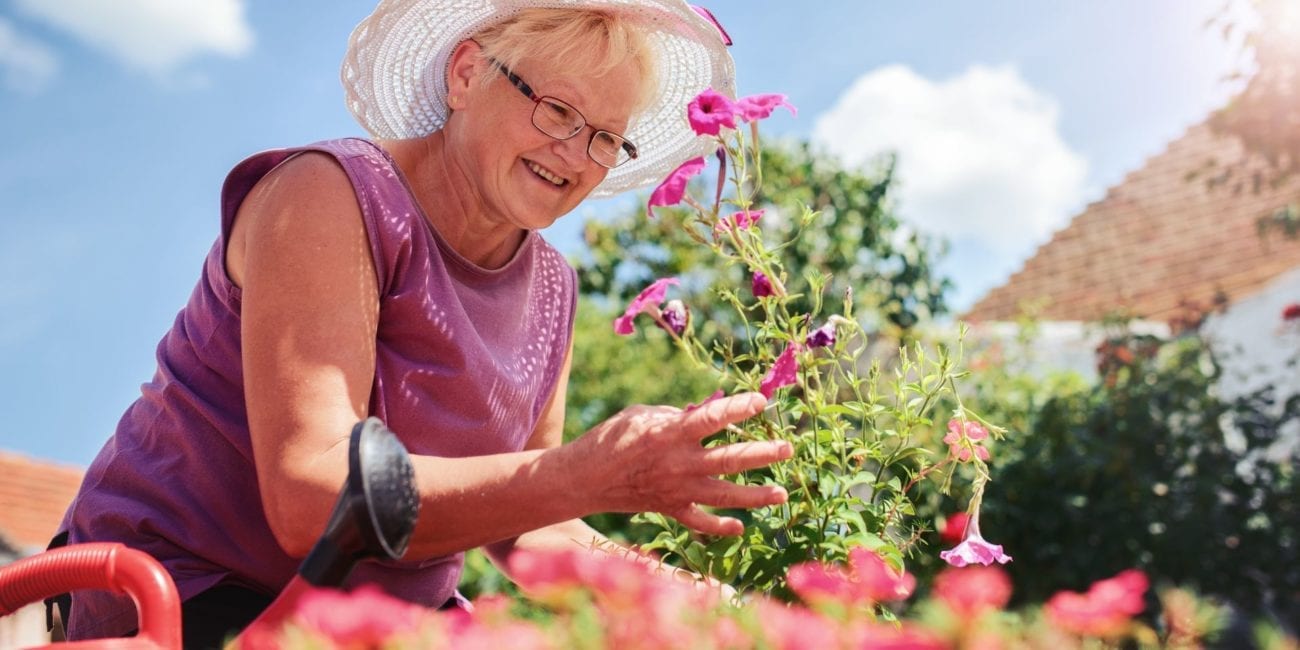
What Are the Physical Benefits of Gardening?
While gardening may seem like a relaxing activity, we often forget how physically challenging it can be. Many medical studies identify gardening as a great form of exercise that includes movement, muscle-strengthening, and balance. All things our aging adults should include in their daily routines when possible.
Gardening is a natural, enjoyable way for a parent to stay motivated physically. However, not all types of gardening will be accessible or safe for every loved one. The goal is to add healthy, fun movement to your loved one’s life, not overly exert them and cause injury.
Some of the more challenging aspects of gardening might not be an appropriate fit for a loved one. Some movements like bending, lifting, squatting, and kneeling can be problematic for golden-year gardeners. Every aging adult’s physical abilities differ, but there are still ways to adapt this healthy hobby to suit our loved ones’ physical needs.
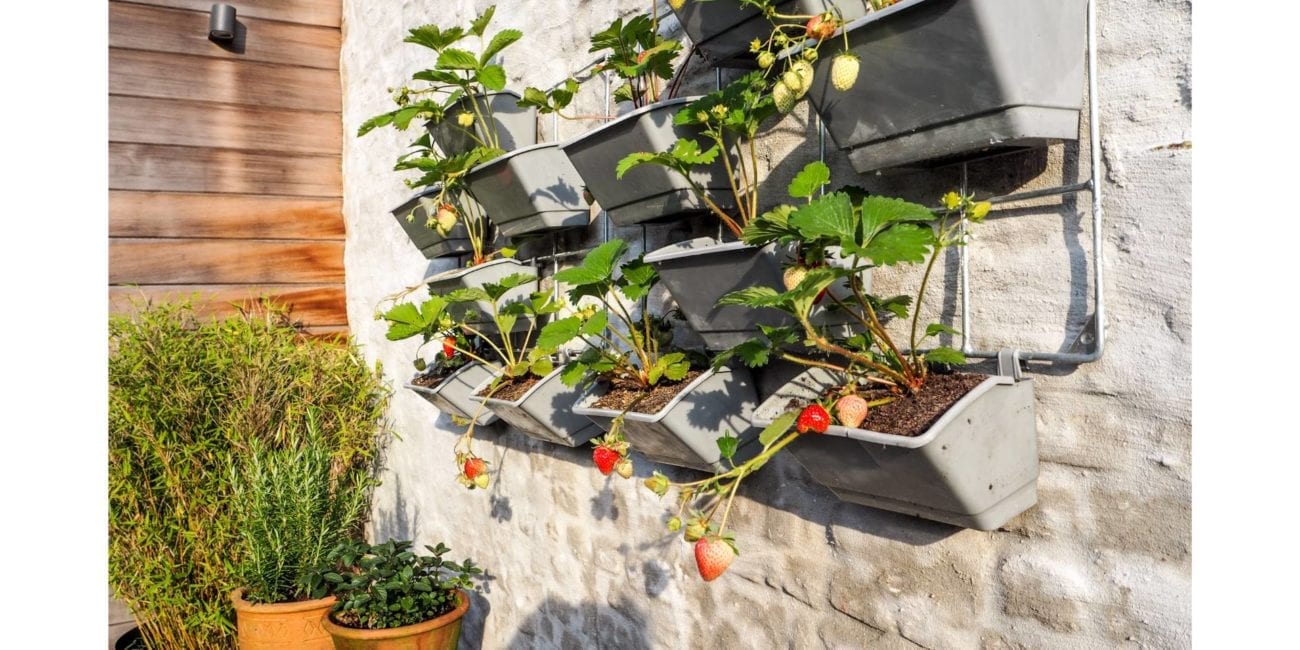
Making Gardening Easier for A Loved One
Not all gardens are created equal, with some yards being easier to navigate than others. Some traditional gardens may be physically prohibitive for older adults. There are simple garden modifications you can make to help ease the stress of this activity for your senior parent.
Vertical Gardening
If bending or kneeling not an option, vertical gardening might be a great adaptive solution. Vertical gardening has become a popular garden modification for seniors.
This type of gardening focuses on plants that grow up and therefore involve less back strain, bending, and kneeling. Usually, these plants are vining plants that use cages, trellises, walls, and other structures to grow upwards on. Additionally, several products can elevate a loved one’s garden, like hanging baskets, vertical planting ladders, and more.
If space is limited to a small lawn or apartment patio, vertical gardening uses outdoor space more efficiently. Below are some plants that work best for vertical gardening:
- Annual herbs (basil, parsley, etc.)
- Vining cucumbers
- Vining tomato plants
- Ferns
- Certain annual flowering vines (morning glory, hummingbird vine, etc.)
- Certain annual flowers (pansies, petunias, begonias)
Raised Beds
Similar to vertical gardening, raised planting beds will elevate the height of a loved one’s garden experience; this will decrease the amount of bending and squatting required of a loved one.
Raised plots elevate the beds, usually about 30 inches off the ground, or enough to reduce or eliminate bending. They are typically built with pathways to all parts of the raised bed and easy access to the center. Additionally, raised flower beds can be a successful gardening technique for loved ones in wheelchairs too. Consider creating wide, accessible pathways between beds for easy movement.
Gardening Tools for the Elderly
Your parent may prefer a more traditional garden. In that case, there are still many products to make this experience more accessible to them. Below are some ideas and products designed for garden modification for seniors:
- Set up a potting bench for an older parent, so they have a dedicated area for gardening. Ensure that soil and other heavier items are stored at waist height, avoiding any heavy lifting needs.
- Invest in a gardening seat for the elderly to rest or padded kneeler so a loved one can easily plant flowers in beds along with their property.
- If a loved one struggles to grip their gardening tools, wrap a thick layer of foam around each handle or consider investing in ergonomic gardening tools.
- Look into extendable tools that will limit the amount of reaching and stretching needed.
- Make sure an elderly parent with mobility has access to a cart or wheelbarrow so they can transport plants and gardening supplies without hassle.
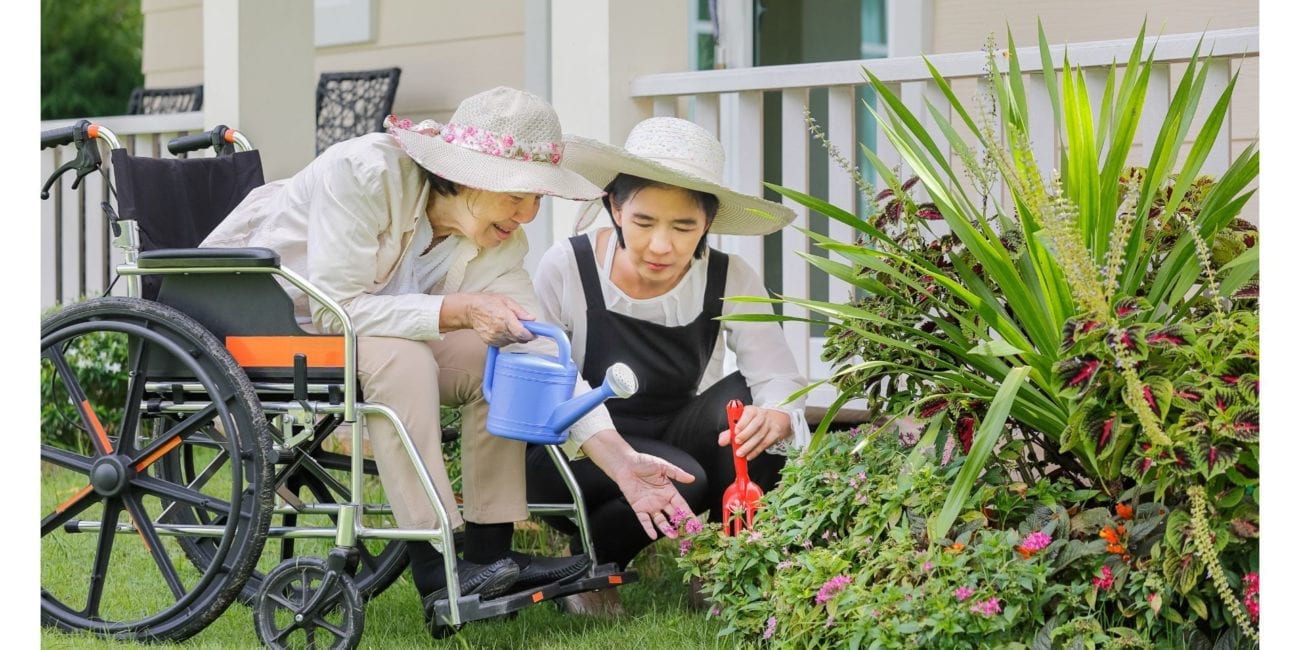
Ways to Make Gardening Safer
As you prepare a loved one’s outside space with garden modifications for comfort, also consider safety. Making their garden accessible is a wonderful and caring first step; but also talk with them about some safety tips before getting out in the yard. Below are some tips for gardening safety:
Sun & Heat Protection
Seniors will be more susceptible to heat and sun. Talk with them about scheduling their gardening activities in the morning to avoid the midday heat. Additionally, leave cans of sunscreen around their home so they can apply it regularly. Make sure they have lightweight, long-sleeved gardening gear to wear; this will protect their arms and legs from sunburns and help prevent scratches as well.
Set up a bench somewhere shady in their garden. This will encourage them to take breaks while they enjoy the fruits of their labor! Some families opt for strategically placed shade trees to help protect their loved one as they garden.
Hydration
Water intake is important during any physical activity, especially when that activity is outside. Make sure your loved one has a water bottle they can keep with them while they’re working in the garden. Consider carving out some space for it by the door, so they always remember to grab water or invest in an inexpensive outdoor mini-fridge so that water is always nearby.
Easy Projects
Sometimes gardening projects can quickly become more complicated than we expect. Stay in good communication with your loved ones about their garden. Are there chores in their garden that they are struggling with and could use some help? Are they feeling a little tired and might need some help with seasonal weeding?
Help a parent pick out some low-maintenance plants for their garden. Heartier plants and flowers will allow them to take breaks throughout the week without worrying about their plants!
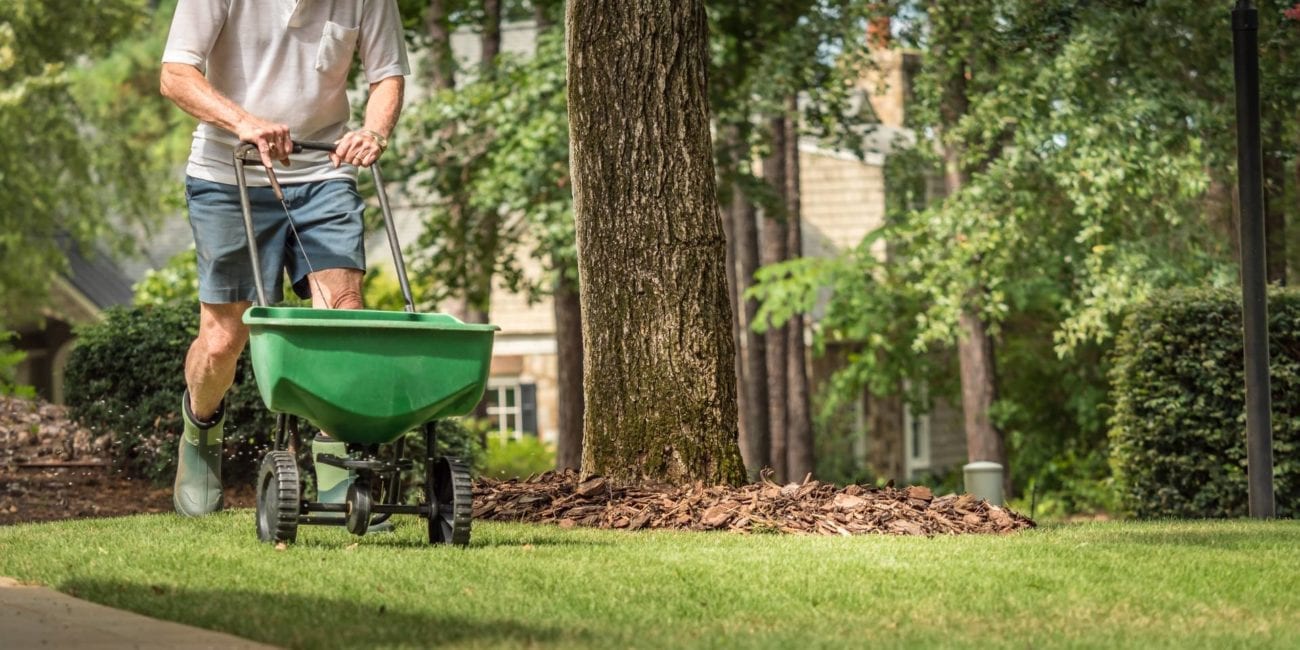
Lawn Care
When considering a garden or yard, most older adults struggle with lawn care. Understandably, this work can be physically taxing and can take hours to complete, leaving your loved one in the sun for far too long. Minimizing a loved one’s workload can help them enjoy gardening without too much strenuous labor. Consider some of these solutions for simpler lawn care:
- Install an automatic sprinkler system installed to make lawn watering easier.
- Hire a landscaping service to help a loved one do heavy-duty maintenance. Consider having them stop by regularly to mow the lawn and trim any trees or hedges that are getting unruly.
- Replace a loved one’s garden with some evergreen ground cover, flower beds, or paths. This can lower the amount of overall maintenance a senior parent has to do to keep their yard looking lush.
- If a parent has memory problems or is prone to wandering, build a fence around their yard to help keep them in a safe area.
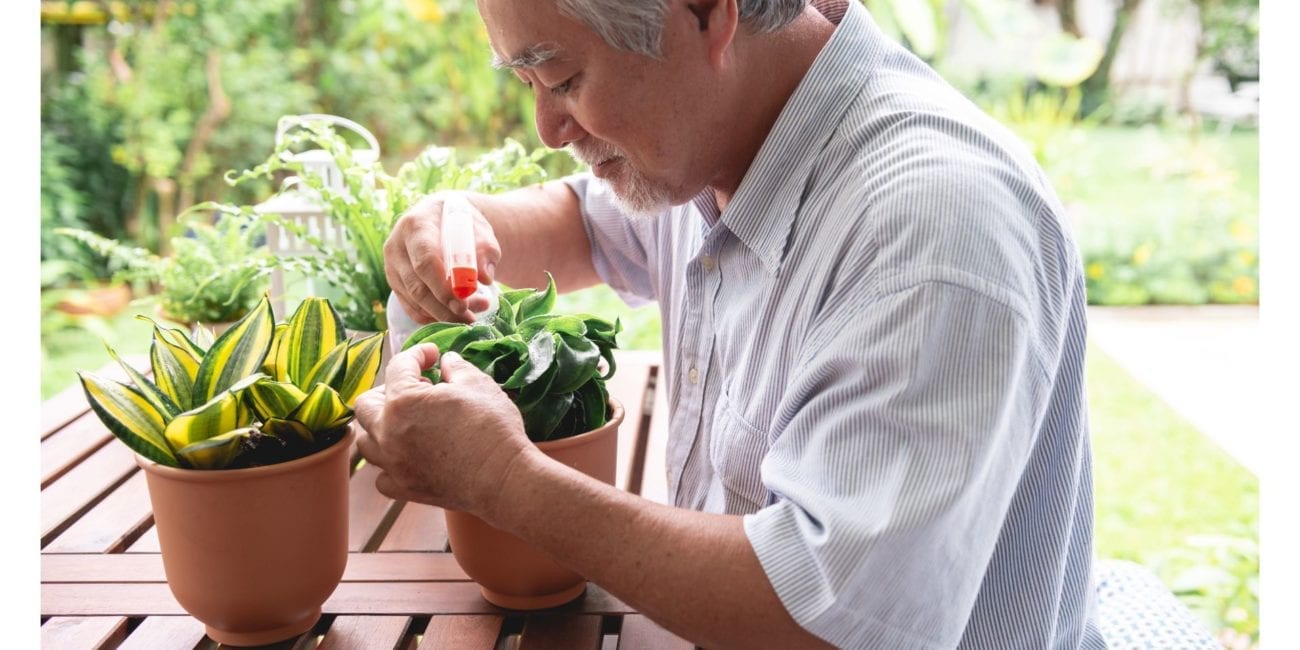
As Love Grows, So Do We
I understand that as you prepare a loved one’s home, there can be a lot to consider. From the kitchen to the garden, we might feel like we have our hands full! However, I want to support you as you work hard to create a wonderful home for your aging adult. Connect with me to learn more about the benefits of gardening and how to best adapt this hobby to a loved one’s home.



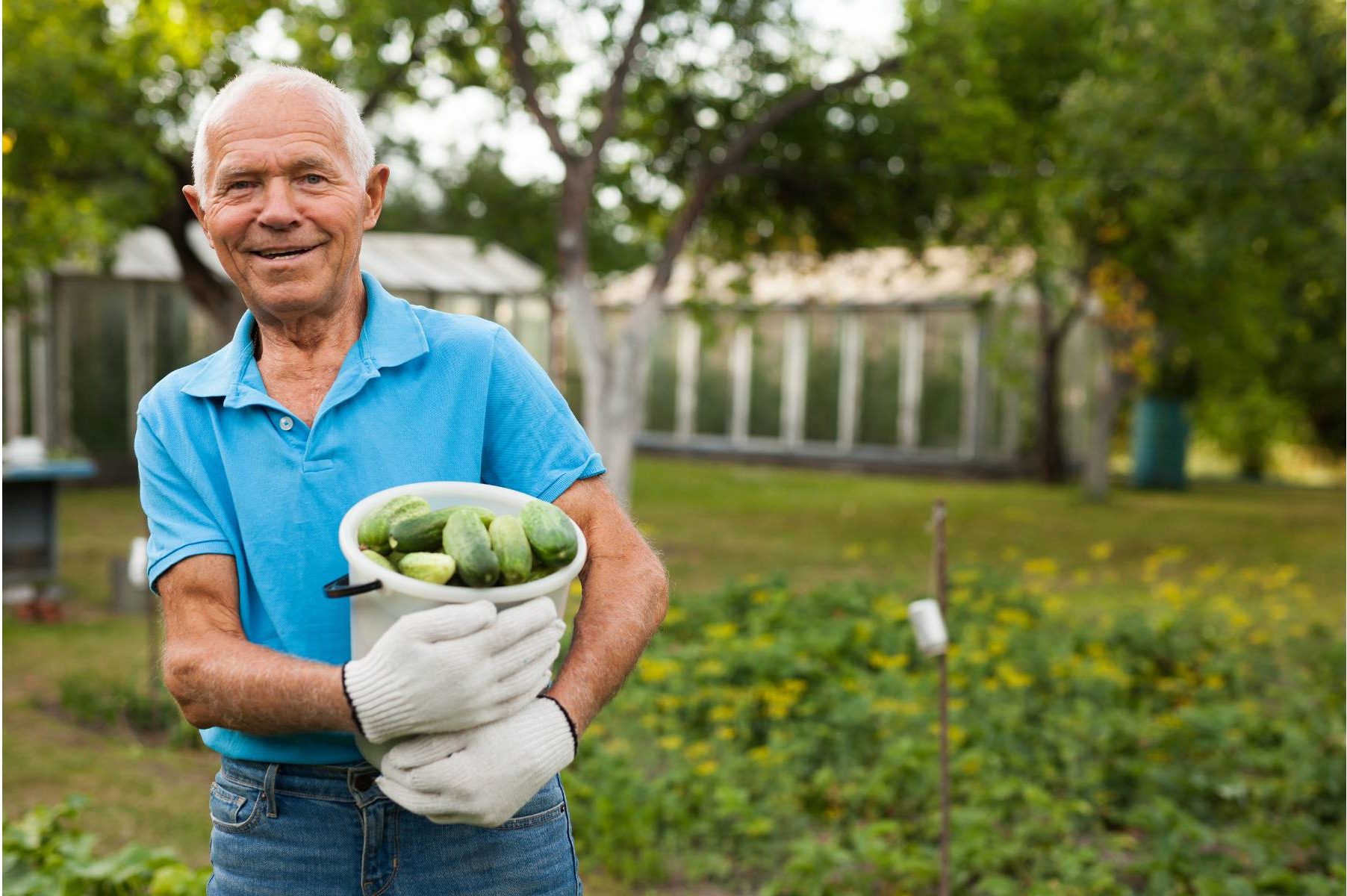
Leave a Reply